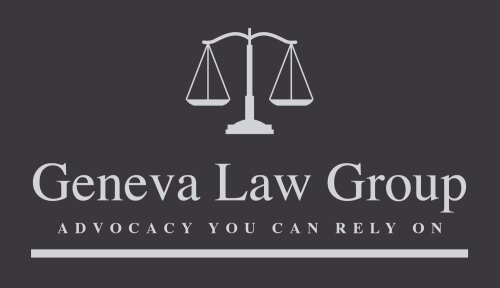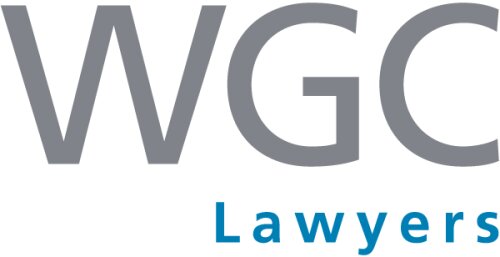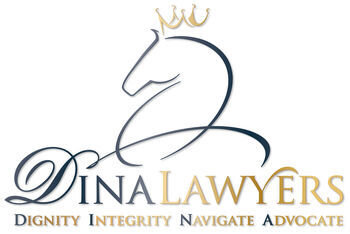Best Commercial Real Estate Lawyers in Sydney
Share your needs with us, get contacted by law firms.
Free. Takes 2 min.
Free Guide to Hiring a Real Estate Lawyer
List of the best lawyers in Sydney, Australia
About Commercial Real Estate Law in Sydney, Australia
Commercial Real Estate (CRE) in Sydney represents a significant component of the property landscape, encompassing a wide range of property types including office buildings, retail spaces, industrial properties, and more. Sydney, being one of the major economic hubs of Australia, presents numerous opportunities and challenges for investors, developers, landlords, and tenants involved in CRE transactions. Navigating the complexity of regulations, market dynamics, and financial implications of CRE requires a sound understanding of the legal framework governing such transactions.
Why You May Need a Lawyer
Engaging with the commercial real estate market involves multifaceted legal issues where seeking advice from a legal expert can be beneficial. Some common situations include:
- Negotiating and drafting leases: Ensuring lease terms are favorable and understanding obligations.
- Property acquisitions and dispositions: Conducting due diligence, negotiating purchase agreements, and closing transactions.
- Resolving disputes: Handling disputes related to leases, tenant evictions, or property management.
- Zoning and land use: Navigating permissions for property developments, expansions, or changes.
- Financing: Structuring financial agreements and ensuring compliance with legal and regulatory requirements.
- Joint ventures and partnerships: Drafting and negotiating agreements for collaborative real estate projects.
Local Laws Overview
Commercial real estate transactions in Sydney are governed by a mix of federal, state, and local laws. Key legal aspects include:
- Property Law Act 1974: Governs property transactions and establishes rights and obligations of property owners.
- Retail Leases Act 1994: Covers leasing in retail and commercial environments, promoting fair lease negotiation standards.
- Environmental Planning and Assessment Act 1979: Relates to land use, planning, and development approval processes.
- Real Property Act 1900: Governs land title and property registration systems in New South Wales.
- Building and Construction Industry Security of Payment Act 1999: Provides a mechanism for contractors to receive progress payments.
Frequently Asked Questions
What is the difference between commercial and residential real estate?
Commercial real estate refers to properties used for business purposes, such as offices, retail spaces, and industrial buildings, whereas residential real estate is used for living purposes.
What should I consider when entering a commercial lease?
Consider the terms and conditions, rent clarity, maintenance responsibilities, duration of the lease, renewal options, and exit strategies.
Can a commercial lease be terminated early?
Termination depends on lease terms, lawful termination provisions, and whether both parties mutually consent to end the lease early.
What is required in a due diligence process for commercial real estate?
Due diligence involves examining the property's title, zoning permits, environmental assessments, existing leases, and financial performance.
How do zoning laws affect commercial real estate?
Zoning laws dictate how a property can be used in terms of type of business, construction limitations, and potential alterations or developments.
Are there specific taxes associated with commercial real estate?
Yes, including goods and services tax (GST), building depreciation, capital gains tax, and potential land tax.
What is the role of a property manager in commercial real estate?
Property managers oversee the day-to-day operations of the property, ensuring tenant satisfaction, maintenance, and adherence to lease terms.
How can disputes between commercial tenants and landlords be resolved?
Disputes are usually resolved through negotiation, mediation, or arbitration, and, if necessary, legal proceedings under relevant legislation.
What are the responsibilities of a commercial landlord in Sydney?
Responsibilities classically include property maintenance, ensuring a safe and habitable environment, and honoring lease agreement terms.
Is it necessary to obtain approval for interior modifications in a commercial space?
Yes, especially if changes affect structural components or building functionality, to ensure compliance with building codes and leasing conditions.
Additional Resources
Consider consulting the following resources for legal advice on commercial real estate:
- NSW Department of Planning, Industry, and Environment
- Law Society of NSW
- Real Estate Institute of New South Wales (REINSW)
- NSW Fair Trading
- Australian Property Institute
Next Steps
If you believe you require legal assistance with commercial real estate in Sydney, consider the following steps:
- Identify your specific legal needs or concerns related to the property.
- Research and select a lawyer specializing in commercial real estate with a strong local presence.
- Prepare all relevant documentation, such as contracts, correspondence, and transaction records, for review.
- Schedule a consultation to discuss your legal position and seek guidance on potential actions.
- Leverage additional resources, such as professional counsel or property management experts, to support your decision-making process.
Lawzana helps you find the best lawyers and law firms in Sydney through a curated and pre-screened list of qualified legal professionals. Our platform offers rankings and detailed profiles of attorneys and law firms, allowing you to compare based on practice areas, including Commercial Real Estate, experience, and client feedback.
Each profile includes a description of the firm's areas of practice, client reviews, team members and partners, year of establishment, spoken languages, office locations, contact information, social media presence, and any published articles or resources. Most firms on our platform speak English and are experienced in both local and international legal matters.
Get a quote from top-rated law firms in Sydney, Australia — quickly, securely, and without unnecessary hassle.
Disclaimer:
The information provided on this page is for general informational purposes only and does not constitute legal advice. While we strive to ensure the accuracy and relevance of the content, legal information may change over time, and interpretations of the law can vary. You should always consult with a qualified legal professional for advice specific to your situation.
We disclaim all liability for actions taken or not taken based on the content of this page. If you believe any information is incorrect or outdated, please contact us, and we will review and update it where appropriate.















